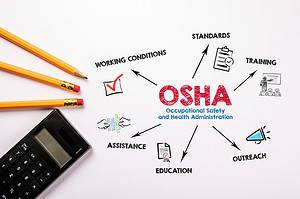Follow Me On:

Expert Tips and Tricks for Using a Sample Size Calculator in Your Data Collection
Updated:It is usually impractical to measure everything if you are trying to collect data. That is why you will use an appropriate sampling technique. But how big a sample should you get? Using a sample size calculator will make that task quick and easy. Let’s see how. When you are required to collect data to […]
Read more
Rational Subgroup
Published:The creation of a rational subgroup is the key to the proper use of control charts. Let’s try to understand what makes them rational.
Read more
Track Your Business Success with a Scorecard
Updated:A scorecard in sports indicates which team is winning by monitoring an important metric such as number of runs, or baskets or touchdowns. Your business scorecard can provide valuable information on how your organization is doing. In business, a scorecard is a tool used to measure and track the performance of an organization or specific […]
Read more
Everything You Need to Know About Residuals in Regression Analysis
Updated:When you hear the term residual, think of linear regression. It is the error of your prediction equation and has implications for the quality of your regression analysis.
Read more
Resolution
Published:If your eyeglasses have the correct prescription, you will have proper resolution and can see clearly and with detail. The same holds true for your Measurement System Analysis and Design of Experiments. Greater resolution means your data can help you see more information about your process.
Read more
Benefits of Robust Processes: Delivering Consistency and Efficiency
Updated:You want your processes to be able to still function well in the face of changes and variation. Let’s learn some more about how you can develop these robust processes. A robust process refers to a well-designed and reliable process that consistently delivers the desired outcomes, even in the face of variations, uncertainties, or challenges. […]
Read more
SCAMPER: Generating Creative Approaches to Process and Product Enhancement
Updated:SCAMPER is an acronym for a simple approach to creative brainstorming. The technique uses a series of questions that prompt you to come up with creative ideas for improving products and processes.
Read more
Mastering the Art of R-Square Calculation: Tips and Techniques
Updated:R-square is the square of R. That’s easy. But what does it really mean, and how do I interpret it?
Read more
Quality Control: Key to Delivering High-Quality Products
Updated:If your organization is known for its high-quality products and services, then you should perceive that as a good thing. But did the concept of quality control help you get there? Let’s explore what quality control really means. Quality is often defined as having your products or services meet your customers’ specifications or expectations. Control […]
Read more
Q1: A Key Metric in Analyzing Performance and Progress
Updated:What does it mean when you see the phrase Q1? Using the common phrase of consultants, it depends, the definition of Q1 is dependent upon the context of its use. Let’s examine the possible definitions. While the phrase Q1 seems simple enough to understand, the true meaning will be a function of the context in […]
Read more
Achieving Excellence Through Quality Management
Updated:The strategy of continuously improving your organizational processes by setting your goals, identifying deviations from those goals, and then taking appropriate actions to adjust your processes to close the gaps.
Read more
Implementing Quality Function Deployment to Strengthen Product Design
Updated:How do you take your customer’s requirements and drill down through the entire product or service development process? Quality function deployment is a great way to do that. Let’s see how it is done.
Read more
Queuing Theory: A Solution for Shorter Lines and Happier Customers
Updated:Have you ever waited in a line at the grocery store or bank? The British term for a line is a queue. Queuing theory is the mathematical study of waiting in line. Let’s learn more about this. The British refer to a line as a queue. Queuing theory is the mathematical study of people, objects […]
Read more
What Every SS Practitioner Should Know About R
Updated:You are convinced there is a correlation between your X and Y variables. But, you won’t know for sure until you can establish the strength of the correlation. That’s where R comes in. Let’s learn some more about R. R is the symbol used to represent the strength and direction of correlation between continuous variables. […]
Read more
The Benefits of a Process Management System
Updated:Process management, sometimes referred to as Business Process Management (BPM) is a systematic approach to ensure that your organization’s business processes are aligned in an efficient and effective manner, and aligned with your organization’s strategic goals. Some of the benefits to having a process management system in place are: Overview: What is process management? The […]
Read more
Parts Per Million (PPM)
Published:The term parts per million, or PPM, is used in a number of contexts in engineering, chemistry and process improvement. We will focus on the application in continuous or process improvement.
Read more
How to Analyze Quantitative Variables
Updated:In statistics and math there are two types of data: quantitative data and categorical data. A variable that represents quantitative data is called a quantitative variable while a variable representing categorical data is called a categorical variable. Overview: What is a quantitative variable? Quantitative data represents values and numbers which can be measured or counted […]
Read more
Discover the Magic of Probability: The Ultimate Guide for Beginners
Updated:Have you ever heard someone ask the question, “What’s the odds of that happening?”. Well, that’s the concept of probability. Let’s learn a little more about probability and how it can be used in your organization. When you start discussing probability with someone else in your organization, you may hear the words deterministic or stochastic. […]
Read more
Producers Risk
Published:You can’t be right all the time when making decisions about your process. But, you can manage that risk. Producer’s risk is one of those risks, so let’s learn a little bit more about it.
Read more
Step-by-Step Guide to Project Selection
Updated:The purpose of Lean Six Sigma is to identify opportunities for improving organizational processes. One of the challenges is the selection of projects for improvement teams to work on. Let’s learn more about how to select impactful projects. Both Lean and Six Sigma projects are used to improve organizational processes. Improvement teams are formed. DMAIC […]
Read more
How to Use the P-Value to Evaluate Your Data and Draw Conclusions
Updated:Is there a real difference between machines? Did what I changed really help? Does a relationship really exist between temperature and pressure? The answers to these questions and others can be provided by the p-value.
Read more
Assessing Process Performance: The Value of Establishing Baselines
Updated:How do you know if your diet is working? You need to start with a baseline and then measure change from that. You should do the same for all your processes. From that process baseline, you can know whether your process is getting better, worse, or not changing. The term “process baseline” typically refers to […]
Read more
OSHA: Ensuring Safe and Healthy Work Environments
Updated:Many organizations claim that safety is Job #1. The Occupational Safety and Health Administration is an agency in the U.S. Department of Labor which is responsible for ensuring that companies provide safe and healthy work environments for their employees. OSHA stands for Occupational Safety and Health Administration. It is a federal agency of the United […]
Read more